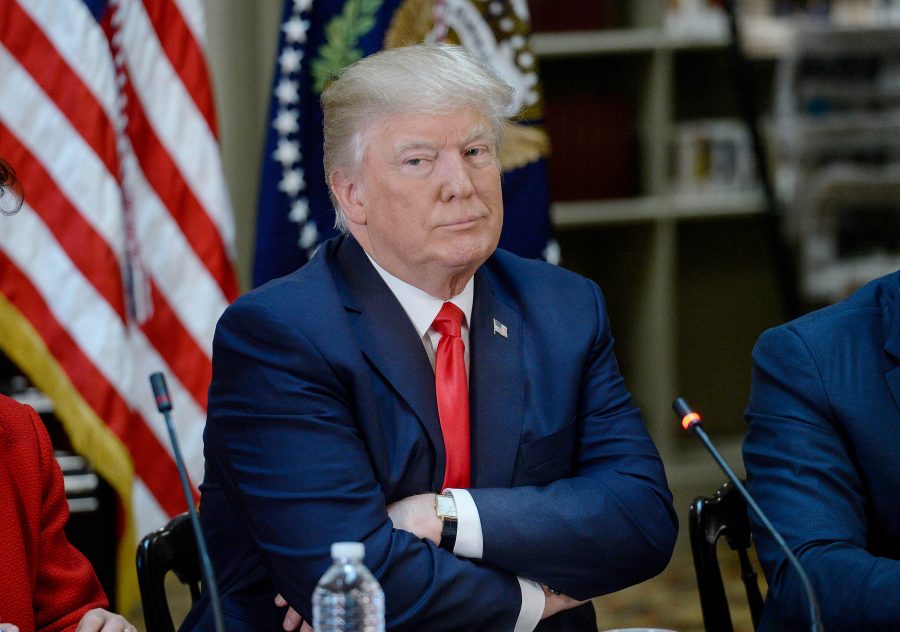Changing libel laws can end “fake news”
U.S. President Donald Trump speaks during a strategic and policy discussion with CEOs in the State Department Library in the Eisenhower Executive Office Building (EEOB) Tuesday, April 11, 2017 in Washington, D.C. (Olivier Douliery/Abaca Press/TNS)
Apr 12, 2017

When The New York Times published a purposely misleading article involving civil rights protesters in 1964, what resulted was a Supreme Court decision that determined what became one of the greatest protectors for the freedom of the press. It set the foundation of libel laws present in our country today.
With all the current tension, it may seem like the media and government commit libel frequently. It has become second nature for the government to slam articles published by popular media outlets as “fake news” by the government, but it surely won’t stop writers from continuing to prove their points.
Adam Liptak of The New York Times published an article covering President Donald Trump’s recent tweet regarding a potential change to libel laws. Liptak noted that changing the laws would be extremely difficult and would require that the Supreme Court overrule the decision which he suggested is “remotely likely.”
But changes could be beneficial in order to stop the ongoing issue regarding “fake news.” Libel laws can be directly utilized to present what is truly fake and what is simply an opinion.
Get The Daily Illini in your inbox!
Currently, libel lawsuits are difficult to win due to the numerous allegations that need to be proven. However, looser definitions of the laws can allow lawsuits to be more successful.
For every action Trump and his cabinet take, the media has a generally negative response; the amount of “dirt” the media has on Trump and his administration is seemingly endless. But with all the information regarding if “Trump did that” or “Trump said this,” it becomes tasking to fully understand what perspective to take with little evidence on these claims.
The same concept applies the other way around, with the Trump administration labeling all of The New York Times media outlets as “incorrect.” It seems as if regulating both the media and the Trump administration when it comes to libel would better the situation for the general public.
While libel laws are labeled to protect the press, journalists should also be ready to stand by them in order to protect truth as well.
If The New York Times truly does continuously provide fake news just to denounce the Trump administration, action can be taken and journalists should respectfully step down. If they are fully committed to their jobs, they should do what they need to do in order to protect the truth — even if it means giving up their entire careers.
If the tables are turned, former President Barack Obama can give Trump a dose of his own medicine regarding his “wire-tapping” claims. News outlets and government officials have made multiple statements regarding the lack of evidence for Trump’s claim. If Trump wants to make such accusations, he should be prepared to face the consequences for it.
If libel were easier to prove, both public figures and media outlets will give themselves a space where both find a balance of power — restoring peace between two of the largest sources of information the general public looks toward.
Saketh is a freshman in DGS.






